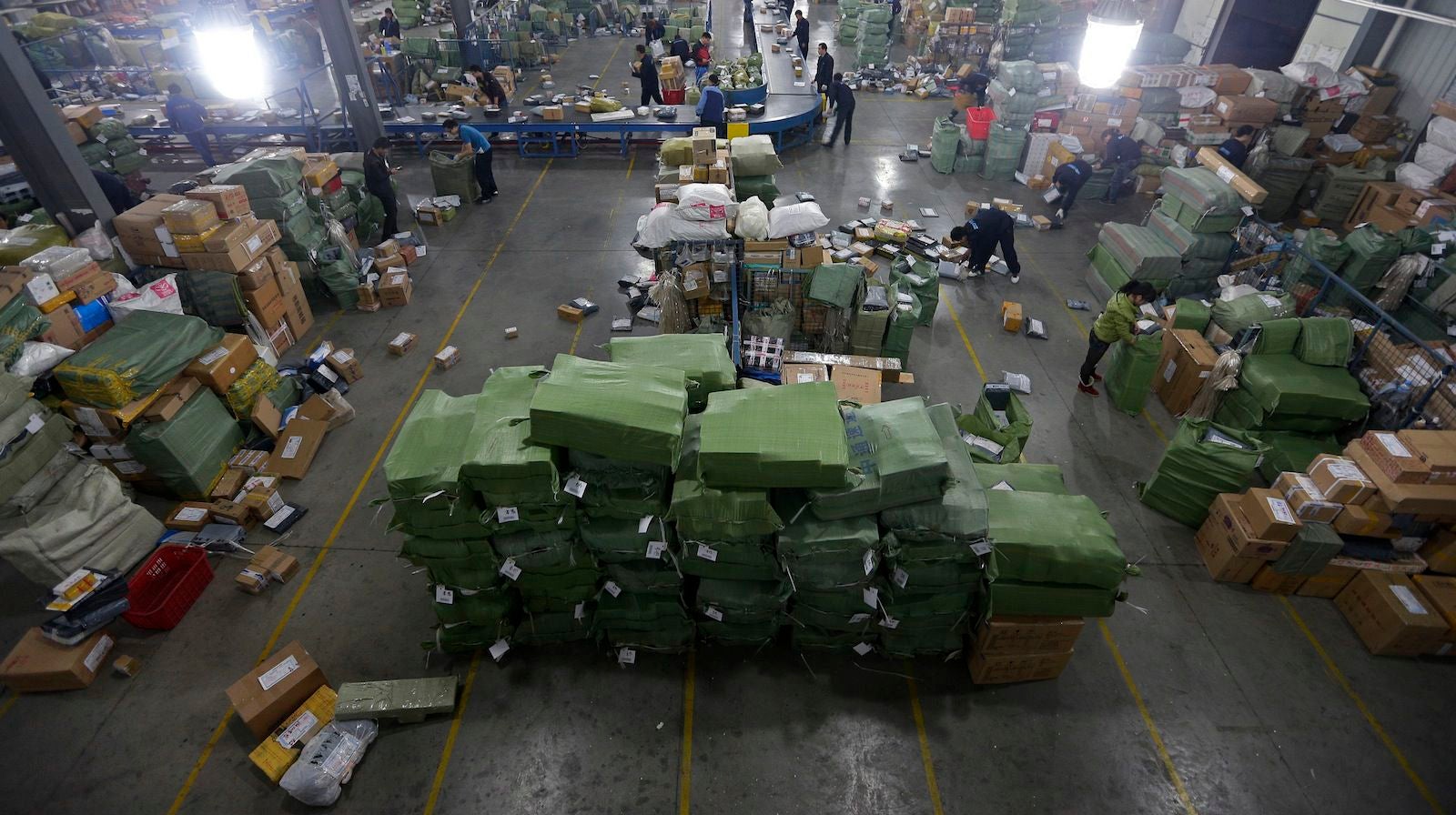Alibaba just sold more than $1.8 billion worth of goods in one hour of online shopping
When the clock struck midnight on Nov. 11, a large screen in the auditorium of Alibaba’s headquarters in Hangzhou, China, lit up with numbers: Within two minutes, over 1 billion yuan ($163 million) had been sold on the Chinese company’s e-commerce platforms. A cheer erupted from the room as green lights glowed on a map of the country, showing which provinces are shopping the most on the world’s largest online shopping holiday. Within an hour, over 11 billion yuan in transactions had been made.


When the clock struck midnight on Nov. 11, a large screen in the auditorium of Alibaba’s headquarters in Hangzhou, China, lit up with numbers: Within two minutes, over 1 billion yuan ($163 million) had been sold on the Chinese company’s e-commerce platforms. A cheer erupted from the room as green lights glowed on a map of the country, showing which provinces are shopping the most on the world’s largest online shopping holiday. Within an hour, over 11 billion yuan in transactions had been made.
This is the first time Alibaba is holding its famous “Singles Day” which takes place on an anti-Valentines holiday called guangunjie, since the company listed on the New York Stock Exchange earlier this year. Executives are taking pains to cast the holiday—and the company—as a globally as possible. “This is the first year we want to change from a Chinese consumer date to a global consumer date,” Jonathan Lu, CEO of Alibaba tells reporters.
This year, one of Alibaba’s platforms, AliExpress, which lets shoppers outside of the country purchase from merchants within China, is part of the event. So far, an excited MC announced, reading from the screen, Hong Kong, the US, and “China’s Taiwan” are the top countries for exports of Chinese goods. The company says that at least 170 countries have participated in the day.


Regardless of the company’s global ambitions for the holiday, it’s not clear that Singles Day can continue growing at such a breakneck pace. Last year, transactions totaled about 36 billion yuan, already a 90% increase from the year before. The costs are high for merchants, who have to pay for extra staff for help in what has become an annual logistical nightmare.
And advertising and marketing in order to compete for shoppers is not cheap—that’s one reason why ads account for 57% of Alibaba’s revenues, Jeff Walters, managing director at Boston Consulting Group, points out. Bottlenecks are common. Consumers find that discounted products, usually 50% or more off, are often sold out within minutes.
But the biggest reason that Singles Day may lose some of its popularity has less to do with customer and retailer fatigue and more to do with a long-term trend that is good news for Alibaba and other e-commerce operators in China, Walters tells Quartz: “Singles Day is likely going to become less ‘exceptional’ relative to a regular e-commerce day in China…because online sales throughout the year have picked up so much.”
At the Alibaba campus, the company has brought in buses of foreign reporters and filled the day with English-language press briefings in the hopes of bringing good tidings of Singles Day to the rest of the world. “This year, sellers and buyers worldwide are celebrating Singles Day together,” says Daniel Zhang, the company’s chief operating officer who first thought of holding promotions on the holiday. “Singles Day is not only a festival for the Chinese, but for the world’s sellers and buyers.”